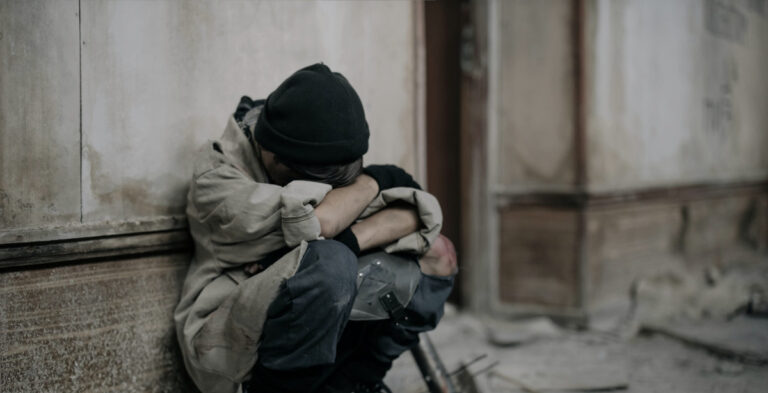The following is a personal testimony based on a true story. All names, locations, and other identifying information have been changed to ensure the safety and privacy of the individuals involved.

At 18 years old, I sat in a clinic staring at test results that would change my life forever. Two words. HIV positive.
My name is Jane, and I’m about to share something that might make you uncomfortable. But here’s why I need to tell you this story.
Three times, I stood at the edge. Three times, I planned to end it all. Today, I mentor dozens of people living with HIV. I’ve raised a healthy, HIV-negative son. My partner of seven years remained HIV-negative throughout our relationship.
This isn’t just my story. It’s a roadmap for anyone who’s ever felt like their diagnosis was a death sentence.
Let me take you back to 2002, when my world fell apart in ways I never imagined possible.
Key Takeaways
- HIV is not a death sentence with proper treatment and care.
- Early medical intervention after sexual assault is crucial (within 72 hours).
- Being “undetectable” means the virus cannot be transmitted to partners.
- Family support and acceptance are powerful healing tools.
- Stigma kills more than the virus itself.
- Anyone can contract HIV – it’s not limited to specific groups.
- Professional counseling is essential for trauma recovery.
When Everything Falls Apart
My mother disappeared on an ordinary Tuesday morning in 2002. She knocked on my bedroom door and said, “Jane, prepare breakfast for your siblings. I’m going to the market.”
Twenty-three years later, we’re still waiting for her to come home.
What I learned later broke my heart into pieces. She had caught my father cheating with our house help. In her desperation, she tried to burn down our house with herself and my younger siblings inside. Neighbors rescued them, but everything we owned turned to ash.
As the eldest of five children, I suddenly became the parent. My father, a police officer, transformed into someone I didn’t recognize. He became violent. He would disappear for weeks, then return to beat us and chase us from our home.
We became beggars, moving from neighbor to neighbor, hoping someone would let us sleep on their floor.
The Night That Turned My Life Upside Down
One night, four thieves broke into our house. After taking our electronics, two of them decided they wanted something else.
I was 18. I was a virgin. My father had been so overprotective that I believed sitting next to a boy could make me pregnant.
They raped me while my younger siblings cowered in the next room. I screamed. I cried. Nobody came to help.
For five days, I couldn’t walk. I couldn’t even urinate without pain. I didn’t know that rape victims should seek medical help within 72 hours. Nobody told me about post-exposure prophylaxis (PEP).
I carried this secret alone.
The Diagnosis That Shattered My Dreams
Six months later, I was preparing to join the army. A week before recruitment, I went for a medical checkup.
Two words screamed back at me. HIV positive.
I told the nurse her machines must be broken. How could someone like me be HIV positive? I was just 18. This disease was for other people, not me.
I tested at five different hospitals. All positive.
The recruitment I had dreamed of was impossible. When I told my father I couldn’t go, he disowned me. He didn’t ask why. He simply decided I was ungrateful.
I started seeing death everywhere I looked.
Four Years in the Valley
For four years, I lived in denial. I refused to take medication because accepting pills meant accepting my reality.
Three times, I tried to end my life:
- I tried to run into traffic on a highway, but the truck driver stopped just in time.
- I prepared rat poison but couldn’t swallow it.
- I stood on a bridge, ready to jump, but a stranger pulled me back.
Each time, something stopped me.
By 2007, a persistent cough forced me back to the hospital. I was tired of living in fear. I told the doctors, “I’m ready. Do whatever you need to do.”
I started taking antiretroviral therapy (ART).
A Father’s Unexpected Grace
My father found my medication while searching through my belongings. I expected rage. Violence. Rejection.
Instead, he sat me down gently and said, “Don’t be scared. I’m sorry I went through your stuff, but I’m glad I found this. There’s life after HIV. I have colleagues who’ve lived with this virus for over 30 years.”
The man who had become a monster suddenly became my biggest supporter. He helped me find work. We rebuilt our relationship.
Job 29:7-10 (NKJV) reminds us:
“7When I went out to the gate of the city, when I took my seat as a city father in the square, 8the young men saw me and hid themselves. The aged rose and stood respectfully. 9The princes stopped talking and put their hands on their mouth. 10The voices of the nobles were hushed and their tongues stuck to the roof of their mouth.”
Sometimes our greatest transformation comes after our greatest trials.
Finding Love Despite HIV
At my new job, a colleague noticed me. I immediately disclosed my status. Instead of running away, he said, “So that’s why you won’t accept me? I’ve done my research. As long as you’re undetectable, we’ll be fine.”
We lived together for seven years. We had a son who was born HIV-negative. My partner never used protection, and he remained HIV-negative throughout our relationship.
This is the power of being “undetectable”. When your viral load is suppressed to undetectable levels, you cannot spread the virus to your sexual partner.
Going Public: From Shame to Strength
My father’s acceptance gave me courage. I decided to go public with my status.
People often tell me, “You don’t look like you have HIV.” I ask them, “What should HIV look like? Should it be written on my forehead?”
I became a peer counselor and mentor. Today, I receive calls from people who’ve just received their diagnosis. Many tell me they were ready to commit suicide until they heard my story.
The Medical Reality of Living with HIV
Here’s what I wish everyone knew about HIV treatment:
Starting Medication:
- Side effects vary by person.
- Common early effects include drowsiness.
- Take medication with plenty of water.
- Consistency is crucial – I take mine at 6 AM every day.
Staying Undetectable:
- Requires strict medication adherence.
- Alcohol interferes with treatment effectiveness.
- Regular viral load monitoring is essential.
- “Undetectable = Untransmittable” is scientifically proven.
Treatment Progression:
- First-line treatment often involves one daily pill.
- Missing doses or drinking alcohol can lead to drug resistance.
- Advanced treatment may need six or more daily pills.
Breaking Dangerous Myths
Many young people believe they can rely on rapid HIV tests before sexual encounters. This is dangerously wrong.
Someone who knows they’re positive can take painkillers before testing, causing a false negative result on rapid tests. This has led to intentional transmissions.
Some people deliberately spread HIV out of anger or revenge. Not everyone will be as honest as I am about their status.
Lessons from Job’s Journey
Like Job in the Bible, I lost everything – my mother, my home, my health, my dreams. People judged me. They whispered behind my back.
But Job 42:12 (NIV) tells us:
“The Lord blessed the latter part of Job’s life more than the former part.”
Today, I run workshops for HIV-positive individuals. I’ve helped establish a foundation, which builds schools and hospitals. My story has prevented suicides and encouraged treatment adherence.
My pain became my purpose.
Moving Forward: The Three Pillars
I teach people living with HIV three principles in Swahili:
- Jijue (Know yourself) – Get tested and know your status.
- Jidhamini (Value yourself) – Accept your situation and take charge.
- Jipende (Love yourself) – Do things that make you happy.
A Message of Hope
If you’ve just received an HIV-positive diagnosis, I want you to hear this: You are not going to die.
You can live a full, meaningful life. You can have healthy relationships. You can have HIV-negative children.
But you must take your medication consistently. You must follow medical advice. You must reject the voices that tell you you’re worthless.
Psalm 118:17 (NIV) declares:
“I will not die but live, and will proclaim what the Lord has done.”
Your diagnosis is not your destiny. Your story is still being written.
If you’re struggling with suicidal thoughts, please reach out to a mental health professional, trusted friend, or suicide prevention hotline immediately. Your life has value and purpose.
Frequently Asked Questions
Q. Can someone with HIV have HIV-negative children?
A. Yes, with proper medical care during pregnancy and delivery, the risk of mother-to-child transmission can be reduced to less than 2%. My son is HIV-negative.
Q. How reliable are rapid HIV tests?
A. While generally accurate, rapid tests can show false negatives if someone takes certain medications beforehand. Always confirm with laboratory blood tests.
Q. What does “undetectable” mean?
A. It means the amount of HIV in your blood is so low that standard tests cannot detect it. When you’re undetectable, you cannot spread HIV to your sexual partner.
Q. Can HIV-positive and HIV-negative partners safely have unprotected sex?
A. Yes, if the HIV-positive partner maintains an undetectable viral load through consistent medication adherence. This is called “Undetectable = Untransmittable” (U=U).
Q. What should someone do immediately after sexual assault?
A. Seek medical attention within 72 hours. Post-exposure prophylaxis (PEP) can prevent HIV infection if started quickly. Also report to authorities and seek counseling support.
Q. Is it legal for someone to reveal another person’s HIV status?
A. No, revealing someone’s HIV status without consent is illegal in many jurisdictions and can result in prosecution.
Q. Can drinking alcohol affect HIV medication?
A. Yes, drinking alcohol can interfere with HIV medication effectiveness. You should avoid it while on treatment.




